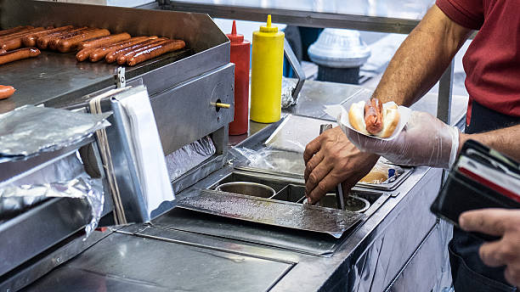Step-by-Step Guide to Starting Your Own Successful Beverage Company SEO
Creating a beverage company involves multiple steps, from market research and product development to branding and distribution. This article aims to guide you through the process, providing a comprehensive overview of what it takes to launch your own beverage enterprise. Whether you’re dreaming of crafting the next hit energy drink or a line of refreshing fruit juices, we’ve got you covered. The beverage industry is competitive, yet full of opportunities for those willing to innovate and persevere. To begin, we will dive into the essentials of feasibility studies and market research. Even if you’re working on a freelance visa in UAE, the fundamentals remain the same wherever you are.
Market Research and Feasibility Study
Understanding Market Demand
The first step in creating a successful beverage company is understanding the market demand. Identifying your target audience is crucial for tailoring your product to meet specific needs and preferences. Analyzing current market trends will give you insights into what consumers are looking for. This involves competitor analysis to see what existing brands are doing well and where there might be gaps in the market. Utilize online tools and surveys to collect quantitative data on customer preferences and buying behaviors.
Feasibility Study
Conducting a feasibility study will help you determine the financial viability of your business idea. Take into account various factors such as startup costs, ongoing expenses, and potential revenue streams. A solid business model should outline your path to profitability. Don’t forget to consider the legal and regulatory requirements specific to the beverage industry, especially if you’re operating on a freelance visa in UAE. These regulations can include health and safety standards, as well as import and export restrictions.
Developing Your Beverage Concept
Choosing Your Beverage Type
Once your market research and feasibility study are complete, the next step is to decide what type of beverage you’d like to offer. Options range from soft drinks and alcoholic beverages to health drinks and specialty teas. Each type has its own set of benefits and drawbacks. Soft drinks and alcoholic beverages often require more regulatory scrutiny but can be highly profitable. On the other hand, health drinks may have a smaller market but can command higher price points due to their perceived benefits.
Formulating Your Beverage
Formulating your beverage involves sourcing the right ingredients and developing a recipe that meets quality and taste standards. This step may require multiple rounds of testing and tweaking to get right. Make sure to prioritize quality over cost, as consumers are increasingly discerning. Ingredient sourcing should focus on sustainability and health benefits. Partner with reputable suppliers to ensure the consistency and safety of your product.
Business Plan and Funding
Crafting a Business Plan
A detailed business plan is essential for guiding your company’s growth and securing funding. Your business plan should include an executive summary, marketing plan, operations plan, and financial projections. The executive summary gives an overview of your business objectives and strategies. The marketing plan outlines how you intend to reach your target audience and generate sales. The operations plan describes how you will produce, store, and distribute your beverage. Financial projections should include income statements, cash flow forecasts, and break-even analysis.
Securing Funding
Securing the necessary funding is often one of the biggest challenges for new entrepreneurs. There are several avenues to explore depending on your financial needs and risk tolerance. Consider the following options:
-
Self-Funding:
Using personal savings or taking out a loan can give you full control but involves significant risk. -
Investor Pitching:
Pitch your business to potential investors, including venture capitalists and angel investors, who can provide substantial capital in exchange for equity. -
Government Grants and Loans:
Research available grants and loans that can provide funding with favorable terms, especially if you are eligible for a freelance visa in UAE.
Setting Up Production
Choosing a Production Facility
The next step is setting up a production facility. Deciding between in-house production and contract brewing is critical. In-house production requires significant upfront investment in equipment and facilities but offers greater control over the production process. Contract brewing allows you to partner with an established facility, reducing initial costs but sacrificing some oversight. Regardless of the route you choose, ensure your production facility complies with health and safety standards.
Hiring and Training Staff
Hiring and training staff is essential for smooth operations. Identify key roles and responsibilities within your production and management teams. Invest in comprehensive training programs to ensure your staff is well-equipped to handle their duties. Focus on creating a positive work environment to retain top talent. Employee retention strategies may include competitive salaries, benefits, and opportunities for career advancement.
Branding and Marketing Your Beverage
Creating a Brand Identity
Branding plays a vital role in the success of your beverage company. Start by designing a memorable logo that reflects your brand values. The importance of packaging cannot be overstated; it not only protects your product but also serves as a key marketing tool. Make sure your packaging design is both functional and visually appealing. Develop a strong brand message and positioning that resonates with your target audience and differentiates you from competitors.
Marketing Strategies
Effective marketing is crucial for reaching and engaging potential customers. Utilize a mix of digital and offline strategies to maximize your reach. Here are some methods to consider:
-
Digital Marketing:
Use social media, SEO, and email marketing to build an online presence and connect with consumers. -
Offline Marketing:
Participate in events, offer product sampling, and establish retail partnerships to increase brand visibility.
Building customer loyalty is another important aspect. Engage with your customers through loyalty programs, responsive customer service, and regular interactions on social media. Encourage feedback and reviews to foster a community around your brand.
Distribution and Sales
Distribution Channels
Establishing reliable distribution channels is essential for getting your beverage into the hands of customers. You have several options to choose from:
| Distribution Channel | Description |
|---|---|
| Direct-to-Consumer | Selling directly to customers through your website or retail store, offering higher profit margins but requiring more logistics management. |
| Retail Partnerships | Partnering with grocery stores, convenience stores, and specialty retailers to reach a wider audience. |
| Online Sales Platforms | Listing your products on online marketplaces like Amazon, offering convenience and broad reach. |
Sales Strategy
Your sales strategy should include setting competitive prices, training your sales team, and regularly measuring sales performance. Establish a pricing strategy that balances affordability with profitability. Equip your sales team with the necessary skills and knowledge through continuous training. Use sales metrics to track performance and make data-driven decisions to optimize your sales processes.
Navigating Legal and Regulatory Landscapes
Licensing and Permits
Navigating the legal and regulatory landscapes is crucial to ensure compliance and avoid legal issues. Obtain the necessary licenses and permits to operate your beverage company. These may include food safety certifications, alcohol licenses (if applicable), and business permits. Be aware of import and export regulations if you plan to expand your business internationally. Compliance with these regulations will prevent legal complications and build consumer trust.
Quality Control and Compliance
Maintaining high quality and safety standards is essential for the success of your beverage company. Implement regular audits and inspections to ensure compliance with health and safety regulations. Establish a robust quality control system to monitor the production process, from ingredient sourcing to final packaging. Any deviation from quality standards should be promptly addressed to maintain product integrity.
Scaling and Growing Your Business
Expanding Product Line
Once your initial product is well-established, consider diversifying your product line. Diversification strategies may include adding new flavors, introducing different beverage types, or creating complementary products. Conduct market research to identify potential opportunities and ensure there is demand for new products. Expanding your product line can attract new customers and increase revenue streams.
Geographic Expansion
Geographic expansion involves entering new markets to reach a larger audience. This may require adapting your product to meet the preferences and regulations of different regions. Conduct extensive market research to understand cultural preferences and market conditions in the new areas you plan to enter. Strategic partnerships with local distributors and retailers can facilitate your entry into new markets.
Conclusion
Creating a beverage company is a challenging yet rewarding endeavor. From market research and product development to branding and distribution, each step plays a crucial role in building a successful business. By conducting thorough research, developing a solid business plan, and implementing effective marketing and sales strategies, you can turn your beverage company dream into reality. Remember to navigate legal requirements carefully and maintain high quality and safety standards. Start planning today and take actionable steps towards launching your beverage company.
Frequently Asked Questions
Q1: How long does it typically take to start a beverage company?
The timeline can vary widely depending on factors like product development, securing funding, and regulatory approvals. On average, it may take anywhere from 6 months to 2 years.
Q2: What are the common challenges faced when starting a beverage company?
Some common challenges include high initial costs, regulatory compliance, intense competition, and establishing a reliable distribution network.
Q3: Do I need a food science background to start a beverage company?
Although a food science background can be beneficial, it is not essential. Entrepreneurs can hire experts to handle the technical aspects of formulation and production.
Q4: Can I start a beverage company from home?
While you can start some initial planning and basic testing from home, commercial production will require a certified facility that meets health and safety standards.
Q5: How important is packaging in the beverage industry?
Packaging is extremely important as it not only protects the product but also serves as a critical element in marketing and brand identity.



Recent Comments